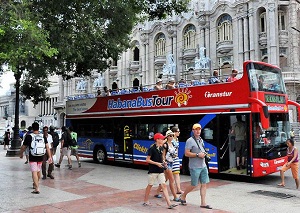 In the morning before breakfast and the start of our intensive journey throughout Cuba, Chuck Wurth would walk through the neighborhoods surrounding our hotels in Havana and Cienfuegos.
In the morning before breakfast and the start of our intensive journey throughout Cuba, Chuck Wurth would walk through the neighborhoods surrounding our hotels in Havana and Cienfuegos.
Wurth, of Overland Park, then would return and share what he had gleaned with his wife, Antonia, and the 21 others in our National Association for Multicultural Education group. His personal, on-the-street, unscripted interactions with everyday Cubans caused Wurth to ask our group: “What are we so afraid of?”
What Wurth found was what we all picked up last month in the nine-day, cultural and professional exchange in the communist country 90 miles south of Florida. Cubans are friendly, open and kind people. None felt oppressed, although by U.S. standards many live in poverty.
Like most Americans, they’d love higher wages, high-tech gadgets and newer cars in this nation where 1940s to early-1960s American vehicles fill the roads because of the economic stranglehold the U.S. has maintained on Cuba. Income upgrades would enable more Cubans afford the luxury of air conditioning in the sweltering tropical heat, and all wanted to ensure that their kids have a bright future.
But no one expressed animosity toward the U.S. despite more than 50 years of our choking economic embargo and numerous U.S. attempts to kill Cuban leader Fidel Castro.
No ill will surfaced in our tour of the Museum of the Bay of Pigs Invasion in Playa Girón. The 1961 invasion, a CIA-sponsored military effort by Cuban exiles to retake the island nation after Castro’s 1959 revolution, failed miserably. We found only pride and reverence there, at the Ernesto “Che” Guevara Museum and Memorial in Santa Clara, the Literacy Campaign Museum and the Museum of the Revolution in Havana. The love Cubans felt for their country didn’t taint any feelings they had for the U.S.
Rodrigo González, our primary coordinator in Cuba, told our group: “We’re neighbors. We’re very close. We want the relationship to be based on respect and mutual benefit.”
That certainly has been more possible since President Barack Obama and Cuban President Raul Castro began talks Dec. 17, 2014, to normalize relations between the two countries. Cubans would like Obama to close the base at Guantanamo Bay and return the property to Cuba. They want Congress to lift the embargo and other restrictions so Cuba can flourish.
In Cuba we found a sense of community and care for others that America seems to have lost. Young people in the Community Project Espiral expressed that feeling for the second year they’ve met with us. But Ruben Rodriguez with Espiral worried about raised expectations, only to have them dashed.
Cubans don’t want to lose their sense of community and history, said Mayrel Suarez, with Espiral and principal of Jacinto Garcia Junior High School. We found a similar connectedness at a Havana health clinic we toured, in discussions with physician Miguel Paneque and at a neighborhood block party with residents in Cienfuegos. This community looked like many blighted East Side Kansas City neighborhoods. But the adults had no doubt their children’s future would be good.
Cuban teens feel a global stress to earn good grades and connect more on social media. Junior high and high school students told us they were motivated to go to college, have professional careers and make Cuba a better place. “They let us be ourselves and say what we want,” said Rachel, 15.
Camillia, 15, added: “But they don’t want kids to forget their roots.”
It’s what U.S. parents want for their kids. At our farewell party, Henry Heredia’s toast was for a continuing friendship between Cuba and the U.S.
We all hoped for the same.
(By Lewis Diuguid, The Kansas City Star)